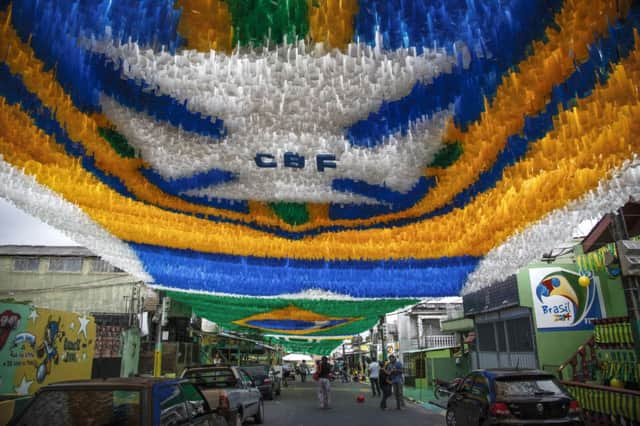Hodgson’s England look to sow seeds for success


Henry Wickham, an explorer from north London, is portrayed as the bogeyman who left Manaus with over 60,000 rubber tree seeds in his satchel, which he reportedly claimed were going to be planted “in the Queen’s garden”. Almost overnight, it is claimed, Manaus’ status, which was built on the rubber boom and initiated talk of the city taking over from Rio as the new capital of Brazil, withered away. The seeds were in fact relocated to Sri Lanka, Malaysia and Africa, dooming Manaus, for a period at least. It is now in recovery mode, built anew on the profits from the manufacturing industry that has seen the state capital of Amazonas swell in size again.
Even now, it is possible to see evidence of its distinguished past, when the city was able to boast of having electricity before Boston. Here was also where the first trams in South America were put into operation.
Advertisement
Hide AdAdvertisement
Hide AdAnd yet Manaus remains an extraordinarily remote place, accessible primarily by boat or plane. Fortunately for Fifa’s plans to keep their World Cup tournament to schedule, the English team chose the latter form of transport, leaving their base in Rio early yesterday morning, They chose not to train yesterday in Manaus. They probably needed all the time they could take to recover from a near four-hour flight.
To give an idea about the area’s size, you could fit four Germanys within the borders of Amazonas. Unsurprisingly, it is Brazil’s largest state. Although situated 1,000 miles from the mouth of the Amazon, to present Manaus as an outpost is not to do the place justice. Even now, it teems with vitality, though those visitors expecting to become instantly at one with nature might be disappointed when they are stranded in the bumper-to-bumper traffic that bedevils the city. Gridlock is expected again before England play Italy in their Group D opener, in a place that Hodgson had said he wanted to avoid.
However, there was a time, in the late 1800s, when Manaus was reckoned to be the most important city in the world. The extravagance of the rubber barons is still displayed today in the shape of the opera house, which dates back to 1896. Some of the steel used in its construction was shipped in from Glasgow. But Manaus is now known for its production of motorbikes, amongst other things. The only Harley Davidson factory outside the United States is situated here. But, as for football, surprisingly for Brazil, there is little heritage, with Manaus’ four teams competing in the lower, regional leagues.
So why are England, and others, playing here? It is a question that has been asked many times, although Hodgson, after his initial reservations, has come to accept the posting, which will see players asked to cope with the overbearing humidity. “I am afraid they will melt,” smiles local tourist guide Miguel Rocha. The humidity, which was as high as 90 per cent on Wednesday, is expected to provide the main problem for the players. Rocha quit his job working behind a desk for Volvo to take visitors on trips up the Amazon. He was born in the jungle, and in a spiritual sense, he says, he has never left. “I was nine months in the belly of my mother, seven years in the belly of the forest,” the 74 year-old says, of his early years, living far from the city. “The canoe was my cradle, the waves of the rivers lulled me to sleep, the song of the birds was my lullaby, the trees were my shade,” he added. He has written a book full of such romantic sentiments, titled O Verde Profundo, or The Deep Green.
When he travels up river, however, it is something else that beguiles those who he meets. Football. “I always try and take footballs with me,” he says. “You can see the children’s faces light up. It is why, when you ask why the World Cup has come here, that is why I am glad that they came.”